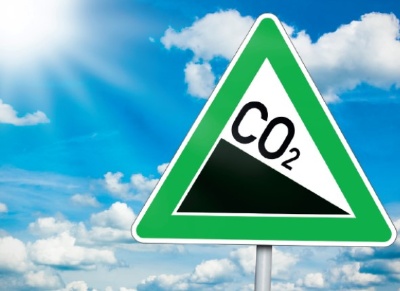Carbon-neutral mobility: challenges and policy options
- 4/9/19 4:28 PM
- Kirsten Oswald
The European Academies’ Science Advisory Council launches its newest report in Bern

The recently published report by the European Academies’ Science Advisory Council (EASAC) entitled “Decarbonisation of transport: options and challenges” was presented at the Swiss Academies of Sciences in Bern on 5 April. As elaborated in the report and presented by the project leader of the working group Konstantinos Boulouchos (ETH Zurich and SCCER Mobility), existing instruments and measures of European energy and transport politics are unlikely to achieve the greenhouse gas (GHG) reduction targets of the Paris Agreement. In fact, there is a very large gap between projected GHG emissions and what is needed to fulfill set commitments and the same holds true for Switzerland. In order to bridge this huge disparity, the EASAC report recommends policy measures that (1) contain demand for motorized transport, (2) shift to lower emission transport modes, (3) improve vehicle design and powertrain efficiency as well as (4) substitute fossil with low-carbon energy carriers. Policy should also focus on accelerating the deployment of low-GHG electricity generation to not only decarbonize the entire energy sector, but also ensure low-carbon electric mobility.
During the following discussion at the launch event invited panelists François Launaz (President auto-schweiz), Roger Nordmann (President UREK), Benoît Revaz (Director BFE) and Konstantinos Boulouchos highlighted the relevance of the report for Switzerland from different perspectives. Interestingly, there was a consensus that reduction goals cannot be met only by shifting to public transport, which is already very extensive and used at high capacity in Switzerland. Increasing the share of public transport would require building up infrastructure, which is very expensive and too slow. Change is needed much faster and public transport cannot fulfill all needs.
For Switzerland, it seems to be more urgent to decarbonize road transport and contain demand for mobility, especially for air travel. Indeed Swiss residents are among the most frequent flyers in the world and the trend is increasing. Therefore, putting a price or tax on carbon dioxide (CO2) will be the key element to regulate and accelerate decarbonization of all transport modes.
There was some disagreement among the panelists concerning oversized and overpowered vehicles, which are especially popular on Swiss roads. They are clearly not energy efficient and emissions could be saved by banning such vehicles, however, it is a fine line to tread between overregulation and people’s freedom of choice. A first step may be different advertising and marketing strategies that promote consumers to buy more energy-efficient cars. There was also some divergence on the topic of charging infrastructure and how the lack thereof is hindering the widespread implementation of electromobility in Switzerland. It is still not clear if electric grid operators should provide this service or if in fact charging points are only a psychological barrier as most owners of electric vehicles charge at home.
Finally, along with having technological solutions available and policies that promote sufficiency, efficiency and transport based on renewable energy, a social and behavioral shift will be paramount. Especially to lower the demand for air travel and long-range freight transport, which will probably be the hardest transport sectors to decarbonize.
To get more details about policy recommendations, refer to the full EASAC report or to the corresponding article in the ETH Zukunftsblog by Konstantinos Boulouchos.
!!! This document is stored in the ETH Web archive and is no longer maintained !!!